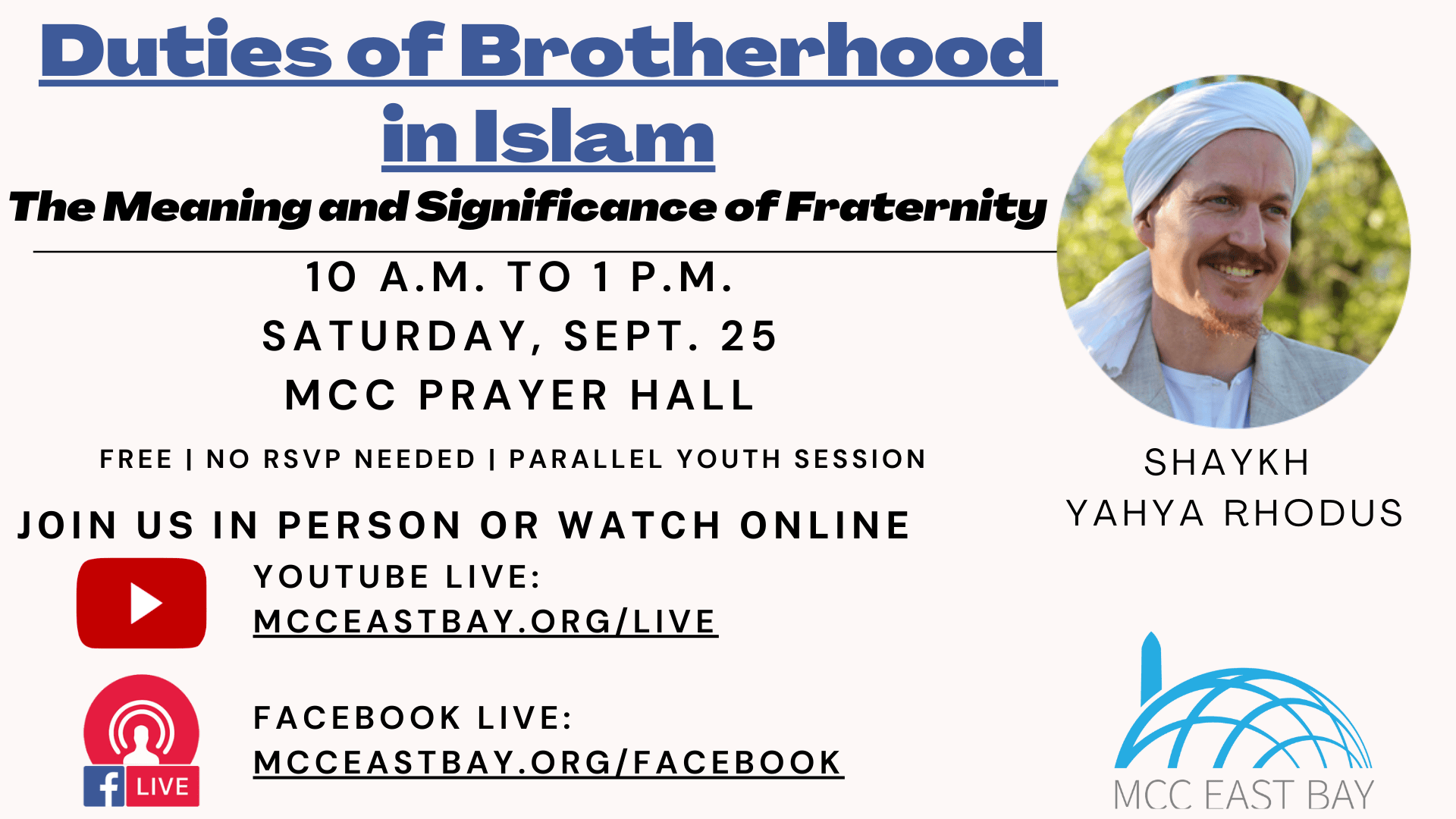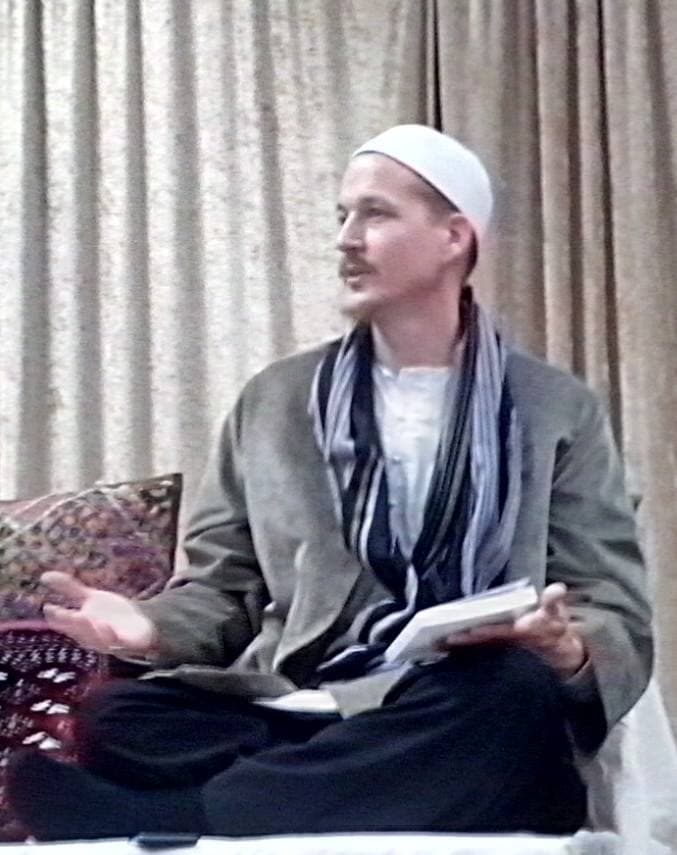Join Shaykh Yahya Rhodus for a workshop on Imam al-Ghazali’s seminal essay that explores the meaning and significance of fraternity in Islam. He will speak on material assistance, personal aid, holding one’s tongue, speaking out, forgiveness, loyalty, sincerity, and informality.
10 a.m. to 1 p.m. | Saturday, Sept. 25 | MCC Prayer Hall (in person) or https://mcceastbay.org/live (virtual)
Free. Masks required while in for duration of time at MCC. No RSVP needed. No babysitting provided. For sisters who want privacy or to social distance, you can watch live in the Conference Room.
- – More Shaykh Yahya: https://mcceastbay.org/yahya
Shaykh Yahya will also give the first Khutbah (1:30 p.m. to 1:50 p.m.) on Friday, Sept. 24.
Ustadh Amjad will also have a parallel teen workshop: https://mcceastbay.org/event/amjad-tarsin
About Shaykh Yahya:
One of the most well-respected Muslim scholars in the Western world, Shaykh Yahya Rhodus has spent the best part of two decades studying at some of the most prestigious learning institutions in the Muslim and Western world.
Having embraced Islam at the age of 19 in Santa Clara, California, he immediately began his study of the Islamic sciences with Shaykh Hamza Yusuf and visiting Mauritanian scholars, such as Shaykh Khatri Wuld Bayba, and Shaykh Abd Allah Wuld Ahmadna. Shortly thereafter, he traveled to Mauritania to pursue a full-time course of study where he was able to learn from one of Mauritania’s greatest scholars, Murabit al-Hajj. Following an interim period of study in Damascus, Syria, Shaykh Yahya went on to spend the best part of seven years in Tarim, in the Hadramawt Valley of Yemen. There, he studied at the reputable school, Dar al-Mustafa, with the renowned scholars Habib Umar bin Hafiz and Habib Ali al-Jifri.
Since that time, Shaykh Yahya has been the official translator for Habib Umar and Habib Ali at various international speaking engagements, including the Common Word Conference held at Yale University in 2008. Upon returning to the United States, Shaykh Yahya served as a full-time instructor at Zaytuna College. He holds a B.A. in Near Eastern Studies from UC Berkeley, an M.A. in Islamic Studies from the Graduate Theological Union, and is currently pursuing a PhD in Theology and Religious Studies at the University of Cambridge, England, in collaboration with Dr. Tim Winter (Shaykh Abdal Hakim Murad).
He is the Founding Director of al-Maqasid where he is a full-time scholar and teacher. Al-Maqasid’s mission is to cultivate holistic learning environments rooted in knowledge, devotion, and service by providing full-time, part-time, online, and community programs.
Questions? events@mcceastbay.org
About the Book Used in the Seminar (optional purchase):
The Duties of Brotherhood in Islam
by Imam al-Ghazali (Author), Muhtar Holland (Translator)
Imam al-Ghazali explores the meaning and significance of fraternity in Islam in this brilliant essay from his seminal work, The Revival of the Religious Sciences, which covers material assistance, personal aid, holding one’s tongue, speaking out, forgiveness, loyalty, sincerity, and informality.
Table of Contents:
Forward
Translator’s Foreword
Introduction: the Time and Place of al-Ghazali
Al-Ghazali: On the Duties of Brotherhood
The First Duty: Material Assistance
The Second Duty: Personal Aid
The Third Duty: Holding One’s Tongue
The Fourth Duty: Speaking Out
The Fifth Duty: Forgiveness
The Sixth Duty: Prayer
The Seventh Duty: Loyalty and Sincerity
The Eighth Duty: Informality
Postscript
Translator’s Notes
Imam al-Ghazali (1058–1111 CE) of Tus in Iran was one of the greatest scholars in the history of Islamic thought. He made outstanding contributions in logic, philosophy, jurisprudence, legal theory, and mysticism.




